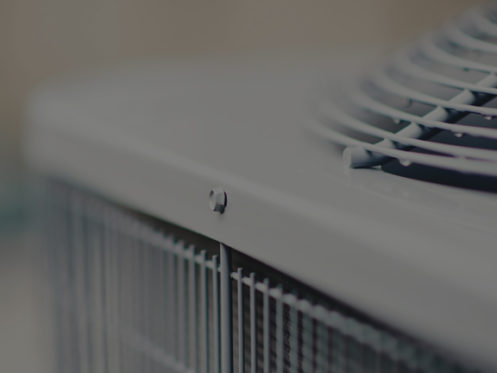Having a well-functioning humidifier in your provides you with a variety of benefits, from improving indoor air quality to helping prevent the development of viruses and illnesses. Humidifiers can also be useful for managing acute and chronic skin conditions as well as for softening skin and hair.
Humidifiers also provide relief from certain symptoms of respiratory illness such as congestion in the nose and chest. Humidifiers help keep houseplants healthy and moist, and they can even help to warm up the air in your home, potentially saving you money on monthly utility bills.
When Your Humidifier Breaks Down
When your home humidifier fails to work properly, it can cause several problems for you, your family members, and your home. Low humidity causes dry skin, irritates nasal passages and throats, and makes eyes itchy and watery. High humidity levels, on the other hand, can make a home feel stuffy and cause condensation on walls, floors, and in your HVAC unit. Excessive humidity levels can worsen respiratory problems and create uncomfortable dampness in the air, which contributes to the growth of dust mites, mildew, mold, and harmful bacteria and pathogens.
Signs That Humidifiers Are Not Working Properly
Monitoring humidity levels in your home will be an essential part of improving indoor air quality and keeping you and your loved ones healthy and comfortable year-round. In general, humidity levels in winter months should be set a bit higher while summer temps naturally raise humidity levels, triggering the need to lower humidity percentages in your home to balance what’s going on outside. Here are some signs that you may be experiencing an imbalance of humidity in your home.
Dry Skin and Hair
Ideal humidity levels for your home should sit between 35 and 50 percent. Low humidity levels cause dry skin and hair issues and may irritate your nasal passages and throat.
White Dust Present On Your Humidifier
The white dust that you see accumulating on your humidifier’s fixtures is due to a mineral byproduct of evaporation on and around your unit. While at first harmless, the continued build-up of mineral deposits can lead to a hardened scale that makes it hard for your humidifier to keep working for you.
Overheating or Fried Circuit Boards
An overheating humidifier may make strange sounds when kicking on and off, and eventually, it will fail to turn on completely. This overheating leads to a fried circuit board, and depending on the severity of the damage, you may have to replace your unit completely.
Leaking In And Around The Unit
When you humidifier begins leaking, it means that water is escaping from the humidifier and is not being distributed into the air as it should. This could be due to a clogged filter, improper line pressure, a maladjusted float, mineral damage, or wrong placement of the water tank. Leaking is more than a symptom that something is wrong; it is a sign to you that attention needs to be put on repairing or replacing your unit to avoid additional damage to your home.
Possible Causes of Humidifier Leaking
Leaking humidifiers may be attributed to a variety of issues. If your system is older and hasn’t been maintained properly, it is common for leaks to start. Scheduling preventative maintenance with a qualified HVAC professional will help your HVAC system and humidifier run more efficiently, saving you both time and money on repairs. Here are some possible reasons that your humidifier may be leaking.
1. Water Backups in The Main Line
Your drain line must run on a continuous slope to your drain. If it is not properly angled toward your drain, air locks may force water all the way back up into the drain line. Your drain line should be inspected and replaced as needed to ensure proper water flow away from your unit. This will increase the longevity and function of your humidifier, allowing it to do the important work of regulating moisture levels in your home.
2. Scale Control Insert Blockage
A blockage in the water panel evaporator can cause excess debris and mineral residue to accumulate, obstructing your drain line and causing a leak. Cleaning the insert and replacing the water panel evaporator as needed should be all that is needed to keep your unit running efficiently.
3. Valve Reversal
If the water flow valve has somehow gotten reversed, this can cause water to pool in and around your unit. Water should be flowing in the direction of the drain; a valve reversal fix may need the attention of a qualified HVAC technician to ensure proper drainage.
4. Open Valves
It is not uncommon for humidifiers to become caked with debris and mineral deposits that can, over time, compromise the ability of valves to open and close properly. Your unit will start showing signs of hard operation, overheating and developing leaks from valves that are lodged open with pieces of debris or hardened mineral deposits that allow water through. Have a professional HVAC technician check and inspect all valves and connections going to and from your unit to ensure proper function in order to minimize possible damage to your home.
5. Higher-Than-Normal Water Pressure
Pressure present in your humidifier that is over 125 psi (pounds per square inch) will eventually cause leaking from both valves and drain lines. This is too much water pressure for a standard humidifier to handle at a given time. Check pressure regularly and use a pressure reducer if needed to maintain the integrity of your system.
Perform Preventative Care For Proper Function
Proper care and cleaning of both free-standing and whole-house humidifiers is important for reducing potential exposures to microorganisms such as bacteria and molds. Microorganisms often grow in humidifiers which are equipped with tanks containing standing water. Maintaining balanced humidity in the home is critical to your family’s comfort and health as well as the health of the home itself. To keep humidifiers free of harmful mold and bacteria, follow the guidelines recommended by the manufacturer. For portable humidifiers, use distilled or demineralized water as tap water contains minerals that can create deposits inside your humidifier that promote bacterial growth. For whole-house humidifiers, a humidistat mounted on the duct return ensures that the unit is operating efficiently and uses 30 percent less water than similar options.
Whole Home Service, Whole Home Comfort
Agers Heating & Air Conditioning has been proudly serving residents of St. Louis and the surrounding area since 2004. With professional services related to HVAC repair, replacement, installation, and maintenance, ductless mini split installation and repair, commercial services, and indoor air quality assessments, we do what we can to make your home as clean, safe, and comfortable as we possibly can. If you suspect that you have unbalanced humidity levels in your home, the experts at Agers Heating & Air Conditioning can help. Contact us today for an assessment of your system, and look forward to a more comfortable, energy-efficient home.



